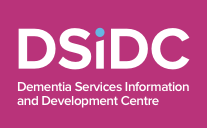Please take an interactive tour of the human brain at alz.org/braintour
Dementia is an umbrella term used to describe a group of symptoms characterised by behavioral changes and the loss of cognitive and social functioning. The individual diagnosed with dementia may also demonstrate a high level of stress and an acute sensitivity to their built and social environment.
Alzheimer’s Disease is the most common cause of dementia and accounts for more than 50% of all cases. Other common causes include vascular dementia, mixed dementia and Lewy body dementia.
Less common dementias include frontotemporal dementia (FTD) including Pick’s Disease, Korsakoff’s Disease, which is alcohol related, Huntington’s Disease, Creutzfeldt-Jakob (CJD) and HIV-associated dementia (HAD), younger onset dementia. Dementia is rare in cases below the age of 60 and is often associated with genetics or a strong family history. In recent years international research has invested much effort investigating the causes of dementia, although progress has been slow, we do know that the single most powerful risk factor for Alzheimer’s Disease is increasing age. In the case of vascular dementia, risk factors such as high blood pressure, smoking, diabetes and obesity increase risk. If controlled, these can reduce the likelihood of dementia.
Dementia is age related and its incidence and prevalence increase significantly with advancing years. At the age of 65, 5% of people are likely to have dementia, while for a person in their 90’s the risk of developing dementia is 50 times greater than that of someone in their 60’s (Gilleard, 2000). In Ireland it is estimated that 42,000 people are likely to have dementia, these figures are likely to increase to between 65,000 and 140,000 over the next 30 years (Cahill et al, 2012).
There is often significant personal, social and economic costs associated with dementia, the majority of which are borne by family caregivers, as most people with dementia live in their own home supported by family and community/voluntary services.
Drugs can in some cases slow the progression of dementia and reduce the associated responsive behaviours. However, the cost of medication is high, not everyone is suitable and in some cases the side effects are profound. Improved public awareness means that more people are being empowered to seek an early diagnosis and the availability of drugs point to the need for early differential diagnosis.
The Dementia Services Information and Development Centre focuses on how the individual can be helped and how the environment can be adapted to minimise the impact of the disability experienced. In recent years, attention has been paid to understanding the subjective experience of people with dementia and to developing appropriate services to respond to these findings. Conventional beliefs about Alzheimer’s Disease and its management have been re-examined and a new focus has been placed on using a person-centred approach to care.
This approach draws on a disability model of health, emphasising the uniqueness and personhood of the individual rather than focusing on the signs and symptoms of dementia. The advantage of this approach is that it highlights how an individual can be helped or enabled and how the environment can be made more appropriate for their needs.
